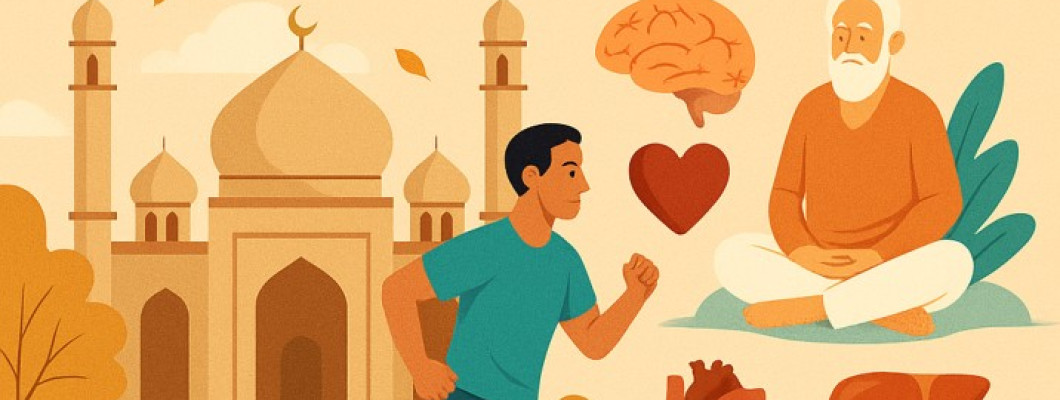
🕌 Introduction
In Unani Medicine, health is preserved through a holistic lifestyle guided by Asbab-e-Sitta Zarooriya (The Six Essential Factors of Life). Among these, Riyazat (Exercise) holds a special place as one of the most important pillars of well-being.
The legendary Unani scholar Ibn Sina (Avicenna), in his masterpiece Al-Qanoon fi al-Tibb (The Canon of Medicine), explained that exercise helps maintain the balance of body humors (Akhlat) and strengthens the natural heat (Hararat-e-Ghariziya)—both essential for vitality and disease prevention.
Interestingly, modern science echoes the same wisdom. International organizations, such as the World Health Organization (WHO), emphasize that regular exercise is crucial in reducing the risk of chronic illnesses, including diabetes, heart disease, and obesity.
👉 In simple words, Riyazat is more than just exercise—it is a complete healing practice for the body, mind, and soul.
📖 What is Riyazat in Unani Medicine?
In Unani Medicine, the term Riyazat refers to purposeful and controlled movement of the body. It is not merely exercise for fitness, but a therapeutic activity designed to:
Increase internal heat (Hararat-e-Ghariziya), which supports metabolism and energy
Eliminate waste (Fuzlat) from the body through sweat and improved digestion
Strengthen vital organs such as the heart, lungs, liver, and muscles
💡 According to Unani scholars, the right kind of Riyazat maintains the body’s natural balance and prevents diseases.
Key Objectives of Riyazat
Strengthen the body & maintain energy – builds stamina and physical power
Improve digestion & metabolism – enhances appetite and nutrient absorption
Enhance circulation & detoxification – supports the heart, lungs, and elimination of toxins
Balance the four humors (Akhlat):
Dam (Blood)
Balgham (Phlegm)
Safra (Yellow bile)
Sauda (Black bile)
Uplift mental health & emotional well-being – reduces stress, improves sleep, and promotes relaxation
🏃♂️ Types of Riyazat in Unani Medicine
Unani medicine recognizes that not all exercises are suitable for everyone. The right form of Riyazat depends on a person’s:
Mizaj (Temperament): Hot, cold, moist, dry
Age: Child, youth, adult, elderly
Season: Summer, winter, spring, autumn
Health Condition: Healthy, weak, recovering from illness
By keeping these factors in mind, Unani scholars divided Riyazat into categories based on intensity, purpose, and effect on the body.
Detailed Classification of Riyazat
Specialized Riyazat by Ibn Sina
Unani scholars, especially Ibn Sina (Avicenna), also highlighted targeted forms of exercise beyond physical movement:
Eye Exercises: Strengthening vision through focus, controlled blinking, and gazing at natural greenery.
Breathing Exercises: Deep breathing, controlled inhalation-exhalation, and activities that expand lung capacity. Beneficial for asthma, weak lungs, and heart conditions.
Mental Exercises: Reading, writing, intellectual debates, problem-solving. Considered Riyazat for the mind—improves memory, sharpens intellect, and prevents mental fatigue.
Seasonal & Temperamental Considerations
Summer: Mild or moderate exercise is recommended, preferably in the morning or evening when it is cool. Avoid excessive sweating.
Winter: Moderate to intense exercises are beneficial, as the body tolerates higher activity due to natural increase in internal heat.
Spring: Balanced exercise, walking, and outdoor sports are considered ideal.
Autumn: Gentle exercise to avoid dryness and fatigue.
💡 By Temperament (Mizaj):
Damvi (Sanguine) → Moderate activity suits best
Balghami (Phlegmatic) → Needs more active exercise to prevent sluggishness
Safravi (Choleric) → Should avoid very intense exercise (causes overheating)
Saudavi (Melancholic) → Balanced exercises with mental relaxation are ideal
🌍 International Insights on Exercise & Health
Modern scientific research strongly supports what Unani medicine scholars like Ibn Sina emphasized centuries ago—movement (Harakat) and rest (Sukoon) are essential for a balanced, healthy life.
Key Global Findings on Exercise
Key Takeaway
Both Unani medicine and modern research agree:
Regular, balanced exercise is essential for long-term health.
Lack of exercise leads to early aging, obesity, and chronic illness.
Excessive exercise, however, may damage the body—echoing Unani’s emphasis on moderation.
👉 In short, global evidence validates the timeless Unani principle: “Harakat wa Sukoon” (movement and rest) must remain in harmony for a long, healthy life.
🌿 Benefits of Riyazat According to Unani Medicine
Unani medicine views Riyazat (exercise) as a powerful tool to maintain balance (I‘tidal) of the body and mind. It is not just about physical fitness but also about detoxification, prevention, and healing.
1. Physical Benefits
Riyazat strengthens the body and improves the overall functioning of vital organs:
Improves digestion (Hazm) – increases appetite and ensures proper absorption of nutrients.
Removes toxins through sweat – eliminates Fuzlat (waste) and prevents harmful buildup in the body.
Strengthens bones, muscles & joints – enhances physical stamina and flexibility.
Prevents obesity & chronic illness – keeps weight under control and reduces risk of lifestyle diseases.
2. Mental & Emotional Benefits
Exercise in Unani medicine is not only for the body but also for the mind and emotions:
Reduces stress & anxiety – balances brain chemistry and calms the nervous system.
Improves sleep & mood – promotes natural relaxation and better sleep cycles.
Boosts memory & focus – acts as mental Riyazat, sharpening intellect (Quwwat-e-Fikr).
3. Preventive & Healing Benefits
Riyazat plays a critical role in disease prevention and restoration of balance:
Balances the four humors (Akhlat) – Dam (blood), Balgham (phlegm), Safra (yellow bile), Sauda (black bile).
Prevents lifestyle diseases – lowers the risk of diabetes, hypertension, and heart conditions.
Strengthens immunity & vitality – enhances Tabiyat (the body’s healing power) and delays premature aging.
👉 In summary: Riyazat in Unani medicine offers a 360-degree benefit—improving physical strength, uplifting mental health, and preventing long-term diseases, while keeping the body’s natural temperament in balance.
⚖️ Balance and Safety in Riyazat
In Unani medicine, the golden rule of Riyazat (exercise) is moderation. Exercise should be customized according to age, season, temperament (Mizaj), and timing. Both excess and deficiency of exercise can harm the body.
1. Age Factor
Children & Elderly: Should perform light exercises like walking, stretching, or mild yoga.
Adults (18–40 years): Can safely perform moderate exercises like jogging, cycling, and swimming.
Middle-aged (40+): Should practice balanced exercises with more focus on flexibility and stamina rather than intensity.
2. Seasonal Factor
Winter: The body tolerates intense exercise better; hence, heavy workouts are encouraged.
Summer: Only light to moderate exercise is recommended, preferably in the early morning or evening to avoid excessive heat and dehydration.
Spring & Autumn: Moderate activities like brisk walking, sports, and outdoor activities are most suitable.
3. Temperament (Mizaj) Factor
Unani medicine teaches that each individual has a unique temperament:
Safravi (Hot & Dry / Choleric): Should avoid over-exercising as it increases dryness and heat in the body.
Balghami (Cold & Moist / Phlegmatic): Benefit most from active and regular exercise to reduce sluggishness and excess phlegm.
Damvi (Hot & Moist / Sanguine): Moderate exercise is ideal for maintaining vigor.
Saudavi (Cold & Dry / Melancholic): Gentle but regular exercise, combined with relaxation, helps prevent stiffness and fatigue.
4. Timing of Exercise
Best practiced on an empty stomach or at least 2–3 hours after a light meal.
Morning time is generally ideal, when air is fresh and energy levels are higher.
Avoid exercise immediately after eating or late at night.
5. Warnings from Unani Scholars
Over-exercise: May cause excessive dryness, fatigue, joint damage, loss of body fluids, and even heart strain.
Under-exercise: Leads to laziness, toxin buildup (Fuzlat), poor digestion, obesity, and reduced vitality.
👉 Key Takeaway: Riyazat should always be balanced—neither too little nor too much. When tailored to age, season, and temperament, it becomes a healing prescription rather than just physical activity.
📊 Comparison: Over-Exercise vs. Under-Exercise vs. Balanced Exercise
👉 Conclusion: In Unani medicine, Riyazat should always be balanced. Too much or too little harms the body, but the right amount strengthens both physical health and mental well-being.
📌 Riyazat in Daily Life – Practical Tips
Unani medicine encourages people to make Riyazat (exercise) a part of their everyday routine. The focus is not on complicated workouts but on simple, natural movements that maintain balance in body and mind.
Easy & Practical Ways to Apply Riyazat
1. Walk After Meals
Light walking after meals is highly recommended in Unani texts.
It improves digestion (Hazm), prevents heaviness, and supports metabolism.
Avoid running or heavy exercise immediately after eating.
2. Prefer Morning Exercise
The best time for Riyazat is in the early morning, when the air is fresh and the body has natural energy.
Morning walks, stretches, or moderate exercise enhance metabolism and set the tone for the day.
3. Combine Physical & Mental Riyazat
Unani medicine values both body movement and mental training.
Physical: Walking, cycling, swimming, yoga-like postures.
Mental: Reading, meditation, problem-solving, meaningful discussions.
This dual approach keeps both the body strong and the mind sharp.
4. Hydration Rules
Drink water after exercise, not during.
Drinking while exercising may disturb digestion and weaken natural heat (Hararat-e-Ghariziya).
Prefer small sips of lukewarm or room-temperature water post-exercise.
👉 Takeaway: Riyazat is not limited to the gym—it’s about smart daily habits. Walking, breathing exercises, light sports, and mental engagement all count as Riyazat when practiced in balance.
🌐 References & Further Reading
For those who want to explore Riyazat (exercise) in more depth, here are some reliable international resources and classical Unani texts:
World Health Organization (WHO) – Physical Activity Fact Sheet
https://www.who.int/news-room/fact-sheets/detail/physical-activityHarvard Health Publishing – Exercising to Relax
https://www.health.harvard.edu/staying-healthy/exercising-to-relaxThe Lancet (2021) – Physical inactivity and global mortality
https://www.thelancet.com/journals/lancet/article/PIIS0140-6736(21)00965-2/fulltextIbn Sina (Avicenna) – Al-Qanoon fi al-Tibb (Canon of Medicine)
A foundational Unani text that emphasizes Riyazat as an essential factor for health and balance.
👉 These references show how classical Unani wisdom on Riyazat aligns closely with modern global health guidelines, making it a timeless practice for well-being.
✨ Conclusion
In Unani medicine, Riyazat is far more than physical exercise—it is a complete lifestyle principle that nurtures both the body and the mind. When practiced in balance—taking into account one’s age, temperament (Mizaj), health status, and season—Riyazat becomes a natural prescription for:
Disease prevention – by strengthening immunity and balancing humors (Akhlat).
Detoxification – by eliminating waste (Fuzlat) and refreshing vital organs.
Mental strength – by reducing stress, improving memory, and enhancing focus.
Longevity – by preserving natural heat (Hararat-e-Ghariziya) and delaying premature aging.
In today’s fast-paced world, where lifestyle diseases such as diabetes, hypertension, obesity, and anxiety are rapidly increasing, the timeless wisdom of Unani Riyazat offers a holistic, natural, and scientifically validated solution for healthy living.
👉 By incorporating Riyazat into daily life, we not only follow ancient wisdom but also align with modern medical science, making it a universal key to health, vitality, and balance.
🌐 Connect with Us
Stay updated with health insights, remedies, and wellness tips from The Hekim.
Facebook: facebook.com/thehekimofficial
Twitter (X): x.com/TheHekimOnline
Instagram: instagram.com/TheHekimOnline
LinkedIn: linkedin.com/in/thehekim
रियाज़त (व्यायाम) यूनानी दवा में – सेहत और लंबी उम्र की प्राकृतिक कुंजी
🕌 परिचय
यूनानी दवा (Unani Medicine) के अनुसार, सेहत को बचाए रखने के लिए एक समग्र जीवनशैली अपनानी ज़रूरी है। इसे असबाब-ए-सित्तह ज़रूरिया (छह ज़रूरी बातें) कहा जाता है। इनमें से सबसे अहम स्तंभ है रियाज़त (व्यायाम)।
महान यूनानी विद्वान इब्न सीना (Avicenna) ने अपनी मशहूर किताब अल-क़ानून फ़ी अल-तिब्ब (Canon of Medicine) में लिखा है कि व्यायाम से शरीर के रस (अख़लात) संतुलित रहते हैं और शरीर की कुदरती गर्मी (Hararat-e-Ghariziya) मज़बूत होती है। यही असली ताक़त है जो बीमारियों से बचाती है और लंबी उम्र देती है।
आज की आधुनिक विज्ञान भी यही कहती है। विश्व स्वास्थ्य संगठन (WHO) के अनुसार, नियमित व्यायाम करने से डायबिटीज़, दिल की बीमारी और मोटापा जैसी गंभीर बीमारियों का ख़तरा बहुत कम हो जाता है।
👉 आसान भाषा में: रियाज़त सिर्फ व्यायाम नहीं है, बल्कि यह शरीर, दिमाग और आत्मा—तीनों की पूरी देखभाल करने वाली एक प्राकृतिक चिकित्सा पद्धति है।
📖 यूनानी दवा में रियाज़त क्या है?
यूनानी दवा (Unani Medicine) में रियाज़त का मतलब है शरीर की सोच-समझकर और नियंत्रित की गई हरकत। यह सिर्फ फिटनेस के लिए की जाने वाली कसरत नहीं है, बल्कि सेहत और इलाज दोनों के लिए अपनाई जाने वाली गतिविधि है।
रियाज़त के मुख्य उद्देश्य:
कुदरती गर्मी (Hararat-e-Ghariziya) बढ़ाना → इससे मेटाबॉलिज़्म (Metabolism) और ऊर्जा मज़बूत होती है।
गंदगी (Fuzlat) बाहर निकालना → पसीने और अच्छे हज़्म के ज़रिए।
दिल, फेफड़े, जिगर और मांसपेशियों को मज़बूत करना।
💡 यूनानी हकीमों के अनुसार, सही तरीके से की गई रियाज़त शरीर के कुदरती संतुलन (Natural Balance) को बनाए रखती है और बीमारियों से बचाव करती है।
रियाज़त के मुख्य लक्ष्य (Key Objectives):
शरीर को मज़बूत और ताक़तवर बनाना → स्टैमिना और शारीरिक शक्ति बढ़ाना।
हज़्म और मेटाबॉलिज़्म सुधारना → भूख और पोषण अवशोषण बेहतर करना।
खून का बहाव और डिटॉक्सिफिकेशन बढ़ाना → दिल, फेफड़े और शरीर की सफाई में मदद।
चार रस (अख़लात) को संतुलित रखना:
दम (खून)
बलग़म (ठंडा बलगम)
सफ़रा (पीला पित्त)
सौदा (काला पित्त)
मानसिक और भावनात्मक सेहत सुधारना → तनाव कम करना, नींद अच्छी करना और मन को सुकून देना।
🏃♂️ यूनानी दवा में रियाज़त की किस्में
यूनानी तिब्ब (Unani Medicine) मानती है कि हर इंसान के लिए एक ही तरह का व्यायाम ठीक नहीं होता। सही रियाज़त इस पर निर्भर करती है:
मिज़ाज (Temperament): गर्म, ठंडा, नम या सूखा
उम्र (Age): बच्चा, जवान, बड़ा या बुज़ुर्ग
मौसम (Season): गर्मी, सर्दी, बसंत, पतझड़
सेहत (Health Condition): स्वस्थ, बीमार या बीमारी से ठीक हो रहा
इन बातों को ध्यान में रखकर यूनानी हकीमों ने रियाज़त को अलग-अलग किस्मों में बाँटा है।
रियाज़त की विस्तृत किस्में
इब्न सीना की ख़ास रियाज़तें
महान यूनानी विद्वान इब्न सीना ने सिर्फ शरीर की कसरत ही नहीं, बल्कि कई विशेष रियाज़तें बताई हैं:
आँखों की रियाज़त: ध्यान से देखना, पलकों को नियंत्रित झपकाना, हरी घास या प्रकृति को निहारना → नज़र मज़बूत होती है।
साँस की रियाज़त: गहरी साँस लेना, धीरे-धीरे छोड़ना, छाती फैलाने वाली कसरतें → अस्थमा, कमजोर फेफड़े और दिल के रोगियों के लिए फ़ायदेमंद।
दिमागी रियाज़त: पढ़ना, लिखना, बहस करना, पहेली हल करना → याददाश्त और सोचने की क्षमता बढ़ती है, मानसिक थकान कम होती है।
मौसम और मिज़ाज के हिसाब से रियाज़त
गर्मी: सुबह या शाम हल्की/दरमियानी रियाज़त करें, पसीना ज़्यादा न निकले।
सर्दी: दरमियानी से तेज़ व्यायाम कर सकते हैं, शरीर इस मौसम में मज़बूत रहता है।
बसंत: सैर और हल्के खेल सबसे अच्छे।
पतझड़: हल्की कसरत ही करें, ताकि शरीर में सुखापन न बढ़े।
मिज़ाज के हिसाब से:
दमवी (गर्म-नम / Sanguine): दरमियानी रियाज़त सबसे ठीक।
बलग़मी (ठंडा-नम / Phlegmatic): ज़्यादा सक्रिय रहना ज़रूरी, वरना सुस्ती बढ़ेगी।
सफ़रवी (गर्म-खुश्क / Choleric): बहुत तेज़ व्यायाम से बचें, वरना शरीर ज़्यादा गरम और सुखा हो जाएगा।
सौदावी (ठंडा-खुश्क / Melancholic): हल्की और संतुलित कसरत + मानसिक आराम सबसे अच्छा।
🌍 व्यायाम और सेहत पर अंतरराष्ट्रीय दृष्टिकोण
आधुनिक वैज्ञानिक शोध भी वही बात साबित करता है जो यूनानी विद्वान इब्न सीना ने सैकड़ों साल पहले कही थी—
👉 सेहतमंद जीवन के लिए हरकत (व्यायाम) और सुकून (आराम) दोनों ज़रूरी हैं।
व्यायाम पर दुनिया की अहम खोजें
अहम नतीजा (Key Takeaway)
यूनानी तिब्ब और आधुनिक विज्ञान दोनों मानते हैं कि:
नियमित और संतुलित व्यायाम लंबी उम्र और अच्छी सेहत के लिए ज़रूरी है।
व्यायाम की कमी → मोटापा, बीमारियाँ और जल्दी बुढ़ापा।
ज़्यादा व्यायाम → शरीर को नुक़सान, थकान और कमजोरी।
👉 आसान भाषा में: दुनिया भर के वैज्ञानिक शोध इस यूनानी सिद्धांत को सही ठहराते हैं कि “हरकत और सुकून” (व्यायाम और आराम) दोनों का संतुलन ही लंबी, सेहतमंद ज़िंदगी की कुंजी है।
🌿 यूनानी दवा में रियाज़त (व्यायाम) के फायदे
यूनानी तिब्ब के अनुसार, रियाज़त (व्यायाम) शरीर और दिमाग का संतुलन (इ‘तिदाल) बनाए रखने का सबसे ताक़तवर तरीका है। यह सिर्फ फिटनेस नहीं, बल्कि डिटॉक्स (सफाई), बीमारी से बचाव और इलाज का ज़रिया भी है।
1. शारीरिक फायदे (Physical Benefits)
हज़्म बेहतर करता है (Hazm): भूख बढ़ाता है और खाने के पोषक तत्व अच्छे से सोखता है।
गंदगी बाहर निकालता है (Fuzlat): पसीने से शरीर साफ होता है और हानिकारक चीज़ें जमा नहीं होतीं।
हड्डियाँ, मांसपेशियाँ और जोड़ मज़बूत: ताक़त और लचक बढ़ती है।
मोटापा और बीमारियों से बचाव: वज़न कंट्रोल में रहता है और लाइफ़स्टाइल बीमारियाँ (शुगर, दिल की बीमारी) कम होती हैं।
2. मानसिक और भावनात्मक फायदे (Mental & Emotional Benefits)
तनाव और चिंता कम करता है: दिमाग़ का संतुलन बनाए रखता है और नसों को सुकून देता है।
नींद और मूड सुधारता है: मन हल्का होता है और नींद गहरी आती है।
याददाश्त और ध्यान बढ़ाता है: दिमाग़ की रियाज़त की तरह काम करता है, सोचने और सीखने की शक्ति (Quwwat-e-Fikr) को तेज करता है।
3. रोकथाम और इलाज में फायदे (Preventive & Healing Benefits)
चार रस (अख़लात) को संतुलित करता है:
दम (खून)
बलग़म (ठंडा बलगम)
सफ़रा (पीला पित्त)
सौदा (काला पित्त)
लाइफ़स्टाइल बीमारियों से बचाता है: डायबिटीज़, बीपी और दिल की बीमारी का ख़तरा कम करता है।
इम्यूनिटी और ताजगी बढ़ाता है: शरीर की कुदरती ताक़त (Tabiyat) मज़बूत होती है और बुढ़ापा देर से आता है।
👉 सारांश: यूनानी तिब्ब में रियाज़त को एक 360 डिग्री फायदा देने वाली आदत माना गया है—यह शरीर को मज़बूत बनाती है, दिमाग़ और मन को सुकून देती है, और लंबी अवधि की बीमारियों से बचाव करती है। साथ ही यह शरीर के मिज़ाज (Temperament) को संतुलित रखती है।
⚖️ रियाज़त में संतुलन और सावधानियाँ
यूनानी तिब्ब (Unani Medicine) का सबसे अहम नियम है – मियाना-रवी (Moderation) यानी न ज़्यादा और न बहुत कम व्यायाम।
रियाज़त हमेशा उम्र, मौसम, मिज़ाज (Temperament) और समय के हिसाब से करनी चाहिए। ज़्यादा या बहुत कम व्यायाम – दोनों ही शरीर के लिए नुक़सानदायक हैं।
1. उम्र के अनुसार रियाज़त
बच्चे और बुज़ुर्ग: हल्की रियाज़त जैसे टहलना, हल्का स्ट्रेचिंग, आसान योगासन।
जवान (18–40 साल): दरमियानी रियाज़त जैसे जॉगिंग, साइकिल चलाना, तैराकी।
मध्यम आयु (40+): संतुलित रियाज़त, ज़ोरदार व्यायाम की बजाय लचक और सहनशक्ति पर ध्यान।
2. मौसम के अनुसार रियाज़त
सर्दी: शरीर तेज़ व्यायाम झेल सकता है, इसलिए भारी कसरत भी ठीक।
गर्मी: सिर्फ हल्की या दरमियानी रियाज़त करें, सुबह या शाम को ही। ज़्यादा पसीना और डिहाइड्रेशन से बचें।
बसंत और पतझड़: दरमियानी गतिविधियाँ जैसे तेज़ चलना, खेल और बाहर की हल्की कसरत सबसे अच्छी।
3. मिज़ाज (Temperament) के अनुसार रियाज़त
सफ़रवी (गर्म-खुश्क / Choleric): बहुत ज़्यादा व्यायाम से बचें, वरना शरीर में सुखापन और गर्मी बढ़ेगी।
बलग़मी (ठंडा-नम / Phlegmatic): सबसे ज़्यादा फ़ायदा एक्टिव और नियमित व्यायाम से, ताकि सुस्ती और बलग़म कम हो।
दमवी (गर्म-नम / Sanguine): दरमियानी व्यायाम सबसे बेहतर, ताक़त और ताज़गी बनी रहती है।
सौदावी (ठंडा-खुश्क / Melancholic): हल्की लेकिन नियमित रियाज़त करें, मानसिक आराम भी ज़रूरी है, ताकि जकड़न और थकान से बच सकें।
4. व्यायाम का सही समय
खाली पेट या हल्का खाने के 2–3 घंटे बाद।
सबसे अच्छा समय सुबह का है – जब हवा ताज़ा और ऊर्जा ज़्यादा होती है।
खाने के तुरंत बाद या रात को देर से व्यायाम न करें।
5. यूनानी विद्वानों की चेतावनी
बहुत ज़्यादा व्यायाम (Over-exercise): सुखापन, थकान, जोड़ दर्द, पानी की कमी और दिल पर बोझ डाल सकता है।
बहुत कम व्यायाम (Under-exercise): आलस, गंदगी (Fuzlat) का जमाव, खराब हज़्म, मोटापा और कमजोरी लाता है।
👉 मुख्य संदेश (Key Takeaway): रियाज़त हमेशा संतुलित होनी चाहिए – न बहुत कम, न बहुत ज़्यादा। अगर इसे उम्र, मौसम और मिज़ाज के हिसाब से किया जाए तो यह सिर्फ व्यायाम नहीं, बल्कि इलाज और तंदरुस्ती का नुस्ख़ा बन जाती है।
📊 व्यायाम की तुलना (Over-Exercise vs Under-Exercise vs Balanced Exercise)
👉 निष्कर्ष:
यूनानी तिब्ब के अनुसार, रियाज़त हमेशा संतुलित होनी चाहिए।
बहुत ज़्यादा करने से शरीर थक जाता है और नुकसान होता है।
बहुत कम करने से आलस, मोटापा और बीमारियाँ बढ़ती हैं।
लेकिन सही मात्रा में और सही तरीके से की गई रियाज़त शरीर और दिमाग़ – दोनों को मज़बूत बनाती है।
📌 रोज़मर्रा की ज़िंदगी में रियाज़त – आसान टिप्स
यूनानी तिब्ब कहती है कि रियाज़त (व्यायाम) को ज़िंदगी का हिस्सा बनाना चाहिए। इसके लिए मुश्किल कसरत की ज़रूरत नहीं है, बल्कि साधारण और प्राकृतिक हरकतें ही शरीर और दिमाग़ का संतुलन बनाए रखती हैं।
रियाज़त अपनाने के आसान और व्यावहारिक तरीके
1. खाने के बाद टहलें
खाने के बाद हल्की सैर करने की सलाह यूनानी किताबों में भी दी गई है।
इससे हज़्म (पाचन) अच्छा होता है, पेट में भारीपन नहीं रहता और मेटाबॉलिज़्म बेहतर होता है।
ध्यान रखें: खाने के तुरंत बाद दौड़ना या भारी व्यायाम न करें।
2. सुबह का व्यायाम करें
रियाज़त का सबसे अच्छा समय सुबह है, जब हवा ताज़ा होती है और शरीर में प्राकृतिक ऊर्जा रहती है।
सुबह की सैर, हल्की स्ट्रेचिंग या दरमियानी कसरत पूरे दिन का मूड और सेहत बेहतर बनाती है।
3. शारीरिक और मानसिक रियाज़त दोनों करें
यूनानी तिब्ब के अनुसार, शरीर और दिमाग़ दोनों को रियाज़त की ज़रूरत है।
शारीरिक: चलना, साइकिल चलाना, तैरना, योगासन।
मानसिक: पढ़ना, ध्यान करना, समस्या हल करना, अच्छी चर्चा करना।
इस दोहरी रियाज़त से शरीर मज़बूत और दिमाग़ तेज़ रहता है।
4. पानी पीने का सही तरीका
व्यायाम के दौरान पानी न पिएँ, बल्कि उसके बाद।
कसरत करते समय पानी पीने से हज़्म बिगड़ सकता है और कुदरती गर्मी (Hararat-e-Ghariziya) कमज़ोर हो सकती है।
सही तरीका: व्यायाम के बाद गुनगुना या सामान्य तापमान वाला पानी छोटे-छोटे घूँट में पिएँ।
👉 सारांश: रियाज़त का मतलब सिर्फ़ जिम में घंटों पसीना बहाना नहीं है। स्मार्ट आदतें जैसे – टहलना, साँस की कसरत, हल्के खेल और मानसिक गतिविधियाँ भी रियाज़त मानी जाती हैं, बशर्ते इन्हें संतुलन के साथ किया जाए।
🌐 संदर्भ और आगे पढ़ने के लिए स्रोत
अगर आप रियाज़त (व्यायाम) को और गहराई से समझना चाहते हैं, तो यहाँ कुछ विश्वसनीय अंतरराष्ट्रीय स्रोत और क्लासिकल यूनानी ग्रंथ दिए जा रहे हैं:
विश्व स्वास्थ्य संगठन (WHO) – शारीरिक गतिविधि तथ्य पत्रिका
WHO – Physical Activity Fact Sheetहार्वर्ड हेल्थ पब्लिशिंग – आराम के लिए व्यायाम
Harvard Health – Exercising to Relaxद लैंसेट (2021) – शारीरिक निष्क्रियता और वैश्विक मृत्यु दर
The Lancet (2021) – Physical inactivity and global mortalityइब्न सीना (Avicenna) – अल-क़ानून फ़ी अल-तिब्ब (Canon of Medicine)
यूनानी चिकित्सा का बुनियादी ग्रंथ, जो रियाज़त को सेहत और संतुलन के लिए अहम मानता है।
👉 ये संदर्भ यह बताते हैं कि यूनानी तिब्ब में रियाज़त पर जो ज्ञान दिया गया है, वह आधुनिक वैश्विक स्वास्थ्य दिशानिर्देशों के साथ मेल खाता है और यह एक समयहीन और प्रभावी स्वास्थ्य अभ्यास है।
✨ निष्कर्ष
यूनानी तिब्ब में रियाज़त (व्यायाम) केवल शारीरिक व्यायाम नहीं है—यह एक पूरा जीवनशैली सिद्धांत है, जो शरीर और दिमाग़ दोनों का पोषण करता है। जब इसे सही संतुलन में, उम्र, मिज़ाज (Temperament), सेहत और मौसम को ध्यान में रखते हुए किया जाता है, तो रियाज़त एक प्राकृतिक इलाज बन जाती है:
बीमारी से बचाव: इम्यूनिटी को मज़बूत करके और रसों (अख़लात) को संतुलित करके।
डिटॉक्सिफिकेशन (साफ़ी): शरीर से गंदगी (Fuzlat) बाहर निकालकर और अहम अंगों को ताजगी देने से।
मानसिक ताक़त: तनाव को कम करके, याददाश्त और ध्यान को सुधारकर।
लंबी उम्र: कुदरती गर्मी (Hararat-e-Ghariziya) को बनाए रखते हुए और समय से पहले बुढ़ापे को धीमा करते हुए।
आज की तेज़-तर्रार दुनिया में, जहाँ जीवनशैली से जुड़ी बीमारियाँ जैसे डायबिटीज़, हाई बीपी, मोटापा और चिंता तेजी से बढ़ रही हैं, यूनानी रियाज़त की समयहीन ज्ञान हमें स्वास्थ्य, ताजगी और संतुलन का प्राकृतिक और वैज्ञानिक रूप से सिद्ध समाधान देती है।
👉 नतीजा: जब हम रियाज़त को अपनी रोज़मर्रा की ज़िंदगी में शामिल करते हैं, तो हम न केवल प्राचीन ज्ञान का पालन करते हैं, बल्कि हम इसे आधुनिक चिकित्सा विज्ञान से भी जोड़ते हैं, जिससे यह स्वास्थ्य, ऊर्जा और संतुलन की एक सार्वभौमिक कुंजी बन जाती है।
🌐 Connect with Us
Stay updated with health insights, remedies, and wellness tips from The Hekim.
Facebook: facebook.com/thehekimofficial
Twitter (X): x.com/TheHekimOnline
Instagram: instagram.com/TheHekimOnline
LinkedIn: linkedin.com/in/thehekim



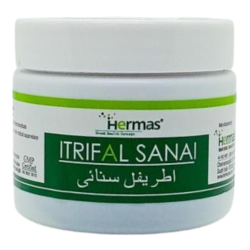
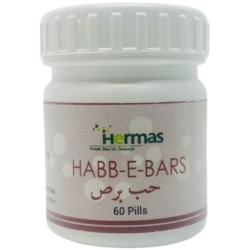
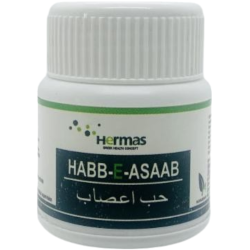
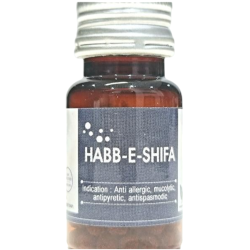

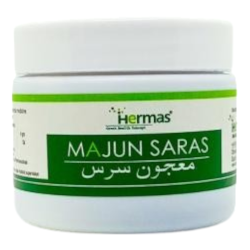
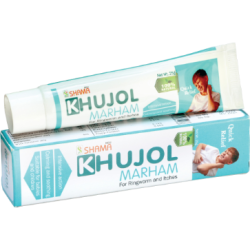
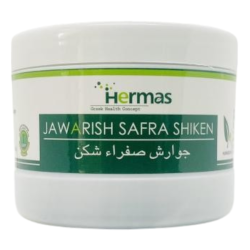




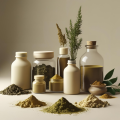

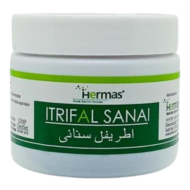
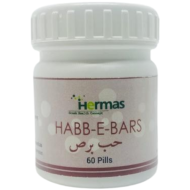
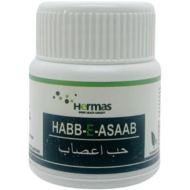



Leave a Comment